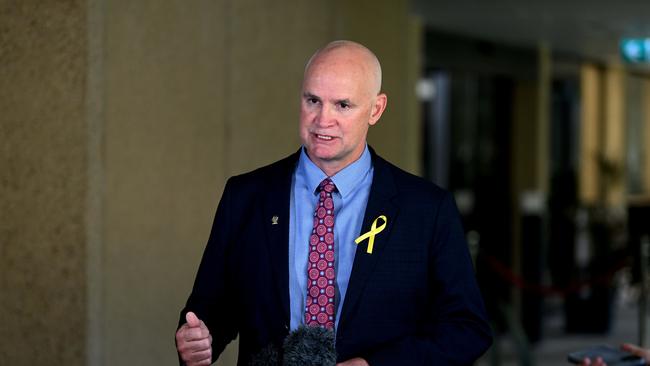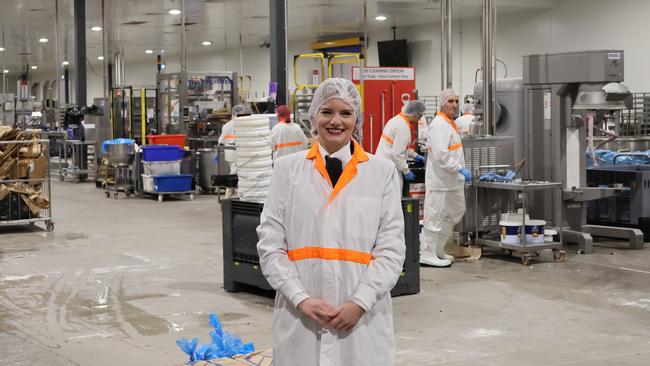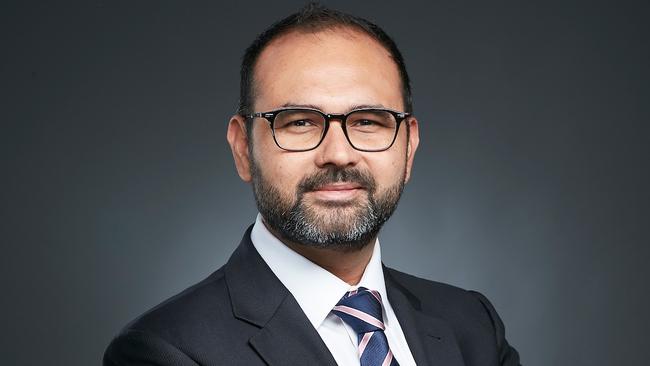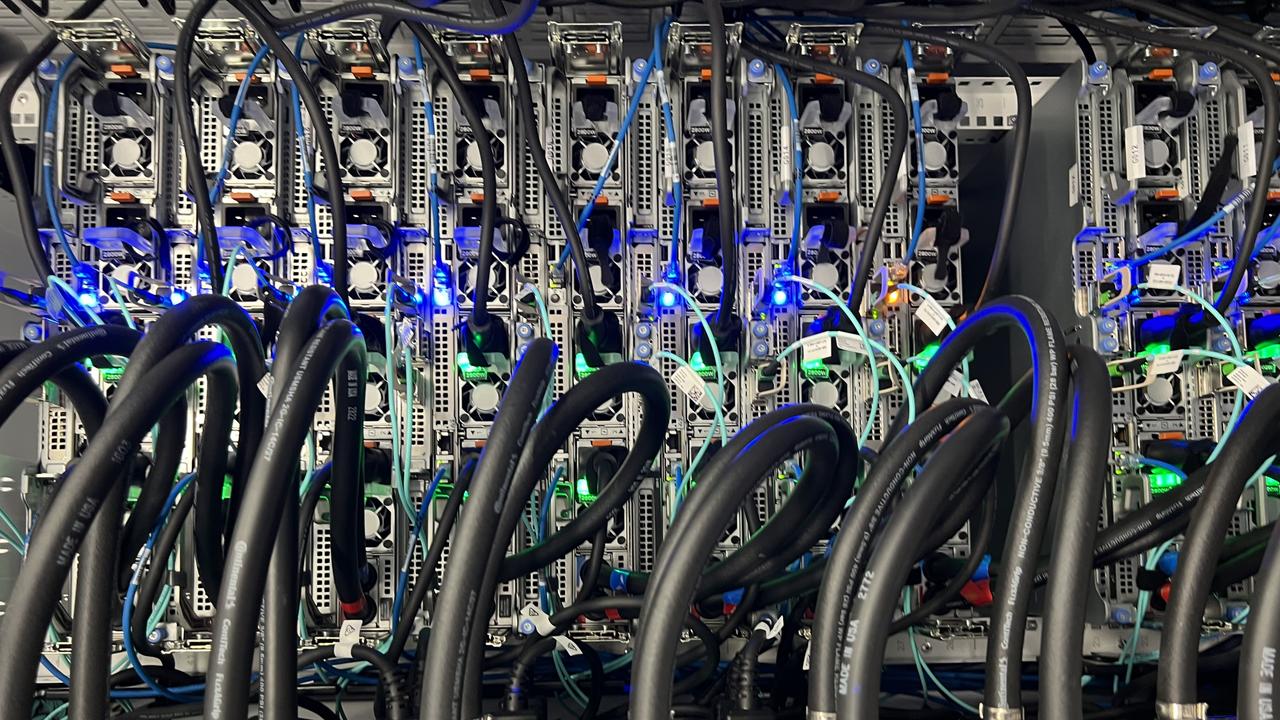Priestley’s Gourmet Delights unveils $53m AI-powered manufacturing facility
A Queensland bakery which began with eight workers nearly 30 years ago has turned the art of cooking on its head with a $53m AI-powered ‘smart factory’.

A Queensland food company claims it’s made an “industry-first” breakthrough with artificial intelligence as the technology becomes intrinsic in day-to-day business operations worldwide.
Robots do all the heavy lifting at the new $53m AI-powered smart factory, developed by Priestley’s Gourmet Delights (PGD), a family owned business in south of Brisbane.
The company was established by Marilyn Jones in 1996 with eight staff. Her niece, Xanny Christophersen, has since taken over the reins and used AI to turbocharge the business.
The 7740sq m smart factory, based at Acacia Ridge, can instantly harness real-time data to boost productivity, improve processes and drive growth.
Queensland Manufacturing Minister Glenn Butcher approved a $2.5m grant from the Made in Queensland program to help the company increase its productivity through the use of AI technology.
This has allowed Priestley’s to purchase and install digital systems, including autonomous intelligent vehicles, or “collaborative robots”, which takes a significant load off human workers.
Mr Butcher said he wanted more Queensland businesses to adopt AI in the workforce.
“This is what our plan for manufacturing in this state is all about,” Mr Butcher said.

“It is so important we continue to help businesses capitalise on technology and advanced manufacturing so they can reach the next level.”
Although robots roam the factory floors, Priestley’s employees continue to play an integral role in everything from hand decorating the products and selecting ingredients to tasting and quality control.
Mobile autonomous robots have streamlined the baking process by stacking products onto baking racks as well as safely moving them around the facility – doubling production capacity and reducing the need for repetitive manual tasks.
Priestley’s chief executive, Ms Christophersen, said employees whose jobs become automated have been upskilled towards higher-value roles.

“With automation, people tend to think that means there are no people involved. But in reality, it means more workers for us,” she said.
“The technology we’re harnessing will allow us to boost productivity while also enabling us to grow our people, supporting them to upskill and creating a substantial number of new jobs for Queenslanders, as well as adding to the state’s economy.”
The new equipment purchased has helped the business create 21 jobs and deliver another 30 new full-time roles by 2026.
The company supplies 14,281 cartons of cake per week to more than 18,000 outlets across Australia.
“Our innovation is a Queensland first in this industry; we have automation and manufacturing execution systems which provide us with data and insights to ensure quality,” Ms Christophersen said.
The factory has solar panels covering the roof, which generates enough power to run the business during daylight.
“We worked with a Queensland engineering company (Mex engineering) to make bespoke equipment for us. It is all designed and made specifically for our operations,” she said.
“We also invested heavily in new technology for our ovens, changing them from gas to electricity so we can reduce our greenhouse gas emissions (and) that’s very unique to us.”
KPMG partner and AI expert Dhawal Jaggi commended Ms Christophersen for the “industry-first” breakthrough.

“I see Priestley’s as a highly inspirational business to set a great example for all Australians,” he said.
“We as humans have only progressed with our ability to reimagine and challenge the status quo.
“There’s a rise in collaborative robots, where machines work safely alongside humans to handle repetitive tasks, and assist with heavy lifting.
“Traditionally speaking, car manufacturers have been pioneers in that technology, but now it’s coming to a point where businesses in Australia are leveraging it to increase efficiency and productivity.”
Mr Jaggi said AI freed up human workers for more complex tasks and created a more collaborative work environment.
Another major benefit of using AI technology in factory settings was to predict maintenance.
“AI has the ability to analyse complex data from machines to predict equipment failure before they actually happen and that ultimately minimises down time and saves costs,” Mr Jaggi said.
“We’re seeing the age of smart factories, where AI is paving the way for a new era of interconnective factories – they can integrate data from across the entire production chain while optimising everything from inventory management to energy usage.”





